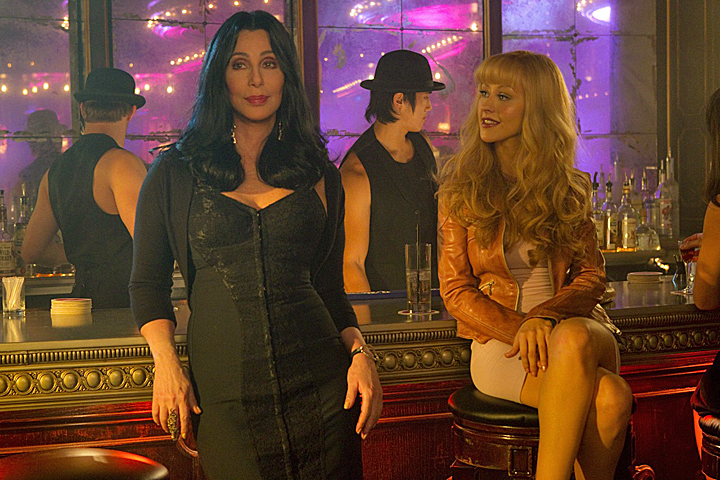Q. So, should there be more Adam Sandler movies? You’ll get what I mean when you read the New York Times article headlined “Economists claim that movie violence might temper the real thing.”
Michael Mirasol, The Flipcritic.com
A. I read the article, which incredibly explains this possibility by observing that violent films “prevent violent crime by attracting would-be assailants and keeping them cloistered in darkened, alcohol-free environments.”
A similar argument could be made that movies about teen pregnancy decrease teen pregnancy, that movies about reckless driving decrease accidents, and movies starring Adam Sandler reduce cluelessness. David Poland at MovieCityNews found a splendid headline for his site’s link to the story: “The first stunningly stupid academic ‘study’ of movies of 2008.”
Q: On the strength of your naming “Juno” the best film of the year, I just took it in at my local googleplex, and I was a tad disappointed, even though I largely agree with your review. I was distracted to the point of annoyance at the implausibly hipper-than-thou sentences zipping out of the lips of the movie’s characters. Juno is hip. Juno’s friends are hip. Juno’s parents are hip. Even Rainn Wilson’s character, the guy behind the counter at the store, is hip. Only Jason Bateman’s and Jennifer Garner’s characters seem to be spared this indignity, probably to make some obscure point about the evils of yuppiehood.
A wise reviewer once wrote: “I have a problem with movies where everybody talks as if they were reading out of an old novel about a bunch of would-be colorful characters. They usually end up sounding silly.” Well, of course that reviewer was you, and the movie was “Raising Arizona.” So can you explain why the affected English bothered you in one but not the other?
C. Morris, Noblesville, Ind.
A. Your local “googleplex”? We discourage that kind of hip coinage around here. Isn’t “movie theater” good enough? Although you have caught me in a contradiction, I would argue that the dialogue in “Juno” mostly works because Ellen Page sells the tone so convincingly. She wins us over. Think of Diablo Cody‘s words in the mouths of Page’s contemporaries, and you cringe. Yes, her parents talk that way: Where do you think she learned it? As for the drugstore clerk and Juno’s best girlfriend, it’s as if she affects the linguistic weather when she enters a room.
And here is Felix Vasquez of the Bronx, N.Y.: “This movie has divided audiences around the Internet. Some love its cute and intelligent way of addressing teen pregnancy, while others hate the pop culture quip-dialogue and put Diablo Cody through the wringer for it. Yet they never seem to complain when Tarantino or Kevin Smith use the exact same sense of dialogue.”
Q. I keep reading about “Juno” having its debut in Toronto. I saw “Juno” a week earlier at the Telluride Film Festival, and Jason Reitman and Diablo Cody were both there in person. How does Toronto get the “debut” status when it played in Telluride a week earlier?
Tom Desmond, Aurora, Colo.
A. What Toronto had was the official world premiere. Telluride never announces its schedule until you get there, and it is allowed by some distributors to show films under the radar.
Q. As an aspiring young filmmaker, I watch and rewatch as many films as possible, around seven to 14 a week (which is tough with college and work). A lot of the time I feel like because I haven’t seen every classic or obscure film, I’m less of a director because I never gleaned that knowledge. I feel small when I see P.T. Anderson or Tarantino display their endless film knowledge.
I’m young, but I love film and I hate when that love is questioned because I haven’t gotten to a certain film. What are your thoughts on this whole neurotic mess of mine? Can someone of this generation, so far removed from the birth of film, still make something as good as “Citizen Kane,” even if they haven’t seen it? (And yes, I’ve seen it several times. And no, I do not think I could match Welles’ genius.)
Roy Hatts, Warwick, N.Y.
A. Join the club. I feel the same way you do. Friends of mine like Jonathan Rosenbaum and Dave Kehr seem to have seen every film ever made — and David Bordwell, Bertrand Tavernier and Pierre Rissient probably have. There is a suspicion in Chicago that members of the University of Chicago’s Doc Films, the first campus film society in the nation, are born having seen every film. But keep on watching good movies. And don’t feel insecure when you make them. After all, Orson Welles watched John Ford’s “Stagecoach” 100 times before making “Citizen Kane.”
Q. In a recent AM column, you remark of the character Judge Holden from Cormac McCarthy’s novel Blood Meridian: “I don’t think the judge was drawn from anywhere except the recesses of McCarthy’s brain.” Actually, the judge is lifted almost entirely fromMy Confession: Recollections of a Rogue by Samuel Chamberlain, an almost certainly hyperbolic description of the real-life Chamberlain’s participation in a gang of cutthroats of which the judge was second in command. McCarthy improves on Chamberlain,who improved on reality, but all the basic elements were there.
Dan Bigelow, Cathlamet, Wash.
A. I’m happy to know that. But inspiration may have more than one parent. Kirby Fields of New York, N.Y., writes: “I think he has more than a little of the great white whale in him from Moby-Dick, as the following passage suggests: “He shone like the moon so pale he was and not a hair to be seen anywhere upon that vast corpus, not in any crevice nor in the great bores of his nose and not upon his chest nor in his ears nor any tuft at all above his eyes nor the lids thereof. The immense and gleaming dome of his naked skull looked like a cap for bathing pulled down to the otherwise darkened skin of his face and neck. As that great bulk lowered itself into the bath, the waters rose perceptibly and when he submerged himself to the eyes, he looked about with considerable pleasure, the eyes slightly crinkled, as if he were smiling under the water like some pale and bloated manatee surfaced in a bog while behind his small and close-set ear, the wedged cigar smoked gently just above the waterline.”
Ebert again. I see what you mean. OK, I’ll now argue that the hero of McCarthy’s Suttree is entirely the product of the recesses of McCarthy’s brain. And don’t write me about Huck Finn.
Q. After reading Jake Ochoa’s question about Satyajit Ray’s “The Apu Trilogy” and your comment about it being a hard-to-find masterpiece, I of course had to find it and see it. I don’t know your feelings on file-sharing, but the entire trilogy is readily available on file-sharing sites such as [site names deleted]. I am tempted to defend file-sharing in this circumstance, but I’ll only go so far as to say that this is a good option for those interested in seeing it, even if the video quality isn’t terribly good.
Aaron Martin-Colby, Saunderstown, R.I.
A. It sure isn’t, and the original U.S. videotapes are only good to fair. You can buy a DVD boxed set from Amazon.co.uk for about $85 and watch it on one of those all-zone DVD machines, which start as low as $60. Kino, Facets or Criterion, are you listening?
Q. In the AM last week, Rhys Southan from Richardson, Texas, suggested a “credit cookie” for “Charlie Wilson's War” featuring an Afghan soldier firing a rocket directly at the audience. Did he forget that the first shot of the film featured an unidentified (but presumably Afghan) fighter firing a rocket directly at the audience?
Paul Apel, Portland, Ore.
A. If they had used Southan’s idea, that would have been your cue, in the old days, to say, “This is where we came in.” It’s been a long time since I’ve heard that in a googleplex.












